What is the Silver Tsunami?
The term 'Silver Tsunami' is metaphorically used to describe the significant rise in the population of older adults. As life expectancy continues to increase and birth rates decline in many parts of the world, the wave of aging adults forms this 'tsunami,' presenting multifaceted challenges to our society and economies.
Age Demographics and the Rise of the Silver Tsunami
Demographically, this phenomenon is primarily due to the aging of the 'Baby Boomers,' a generation born post-World War II between 1946 and 1964. As this large population cohort reaches retirement age, the number of older adults is set to surpass that of children, leading to a higher dependency ratio and significant shifts in the societal and economic landscape. The world is witnessing a demographic transition, and the rise of the Silver Tsunami is a testament to it.
Baby Boomers' Role in the Silver Tsunami
As Baby Boomers transition into their senior years, they bring about profound impacts on various aspects of society. These include increased demands for healthcare, housing, and social services, to name a few. The wave of retiring Baby Boomers also means a potential labor shortage, which could lead to significant economic implications. The role of Baby Boomers in the Silver Tsunami phenomenon is hence critical, and their needs and challenges should be proactively addressed.
Economic Consequences of the Silver Tsunami
The Silver Tsunami presents significant economic consequences. An aging population means fewer working-age individuals, potentially leading to a decrease in productivity and economic growth. Additionally, the pressure on pension systems and social security becomes increasingly high as the number of retirees grows. Governments and institutions worldwide must navigate these challenges carefully to ensure economic stability.
Silver Tsunami's Effect on Future Generations
The economic effects of the Silver Tsunami also extend to future generations. The younger working population may face increased tax burdens to support social security systems. There is also the challenge of job automation that might be hastened due to the labor shortage. Future generations must be equipped with the skills and knowledge to adapt to these impending changes.
Healthcare Challenges Posed by the Silver Tsunami
The healthcare sector is expected to face a significant burden due to the Silver Tsunami. With advanced age comes an increased likelihood of chronic diseases, necessitating more frequent healthcare interactions and longer-term care. This surge in healthcare demand will place enormous pressure on existing healthcare infrastructure and services. It also accentuates the need for innovative healthcare models that efficiently serve an aging population without compromising the quality of care.
Rising Healthcare Demand with an Aging Population
As the Silver Tsunami rises, so does the demand for healthcare. Aging often brings with it a host of health issues, including chronic diseases and mental health problems. This rising demand presents a significant challenge to existing healthcare infrastructures and services.
The Impact of the Silver Tsunami on Healthcare Costs
With increased demand comes higher healthcare costs. An aging population means a greater consumption of healthcare services, driving up healthcare expenditures for both individuals and society. Cost-effective solutions and policies need to be developed to manage these rising costs.
Silver Tsunami and Retirement Planning

The Silver Tsunami has made retirement planning a pressing issue. As individuals live longer, the need for comprehensive financial strategies that guarantee a comfortable and secure retirement becomes imperative. Moreover, the strain on social security systems due to the expanding retiree population could necessitate increased personal saving and investment for retirement. This scenario underscores the importance of enhancing financial literacy and promoting efficient retirement planning strategies.
Retirement Planning Strategies for the Silver Tsunami
Proper retirement planning is essential to navigate the Silver Tsunami. This includes considering various factors like income sources, living arrangements, healthcare needs, and legacy plans. Financial literacy and guidance are crucial to help older adults make informed decisions about their retirement.
Preparing for the Silver Tsunami
Preparation for the Silver Tsunami encompasses a broad range of strategies, from bolstering healthcare infrastructure to fostering age-friendly communities. Innovations in technology can play a crucial role in managing healthcare demand and improving the quality of life for older adults. At the same time, social and policy measures are required to ensure affordable, high-quality long-term care and viable social security systems. Preparing for the Silver Tsunami is a shared responsibility that calls for a collective effort from all sectors of society.
Healthcare Solutions for Elderly Care
During the course of the silver tsunami, several innovations will be needed in areas of healthcare such as patient experience, chronic disease management, population health, value-based care, precision medicine, and many more. Aging research will play a major role in the coming years in overcoming the challenges posed by the silver tsunami. AI-enabled health monitoring, or community-based health programs. Embracing such solutions can help to provide better care for older adults and manage the increasing healthcare demand.
Senior living will impact the healthcare system in a variety of ways. Baby boomers are expecting more amenities than before. There will be senior communities in cities and suburbs. The demand for healthcare and the standard of senior living is expected to rise. So, to reduce the pressure on these areas, efforts are being made to prolong the aging process and eliminate the risk of age-related diseases with the help of new drugs such as caloric restriction mimetics. These drugs are observed to increase the lifespan in many model organisms.
Health Supplements for Older Adults
As people age, their nutritional needs change. This is due to a number of factors, including changes in metabolism, absorption, and nutrient requirements. As a result, older adults may not be getting enough of certain nutrients from their diet alone. This can lead to a variety of health problems, including fatigue, weakness, impaired immune function, and an increased risk of chronic diseases.
Health supplements can help older adults meet their nutritional needs and promote overall health and well-being. However, it's important to remember that these should be used as a supplement, not a substitute for a balanced diet. A healthy diet should include plenty of fruits, vegetables, whole grains, lean protein, and low-fat dairy products. Health supplements can be used to fill in the gaps and ensure that older adults are getting all the nutrients they need.
Some of the most important nutrients for older adults include:
Vitamin D: Vitamin D is essential for bone health and helps to protect against osteoporosis. Older adults are at increased risk of vitamin D deficiency, especially if they live in northern climates or spend a lot of time indoors.
Calcium: Calcium is also important for bone health and helps to prevent osteoporosis. Older adults need more calcium than younger adults.
Vitamin B12: Vitamin B12 is essential for nerve function and red blood cell production. Older adults are at increased risk of vitamin B12 deficiency, especially if they are vegan or vegetarian.
Folate: Folate is important for preventing birth defects and can also help to improve cognitive function. Older adults may need more folate than younger adults.
Omega-3 fatty acids: Omega-3 fatty acids are important for heart health and can also help to improve cognitive function. Older adults may benefit from taking a supplement that contains omega-3 fatty acids.


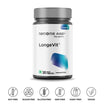
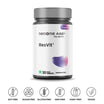


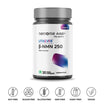
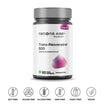
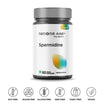


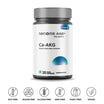
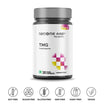
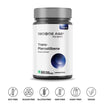
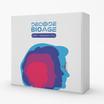










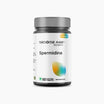





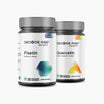







Leave a comment
This site is protected by reCAPTCHA and the Google Privacy Policy and Terms of Service apply.